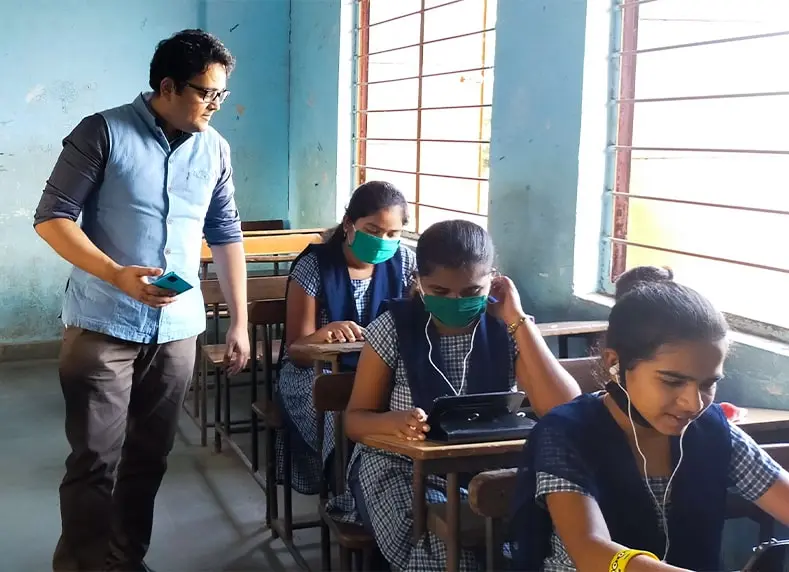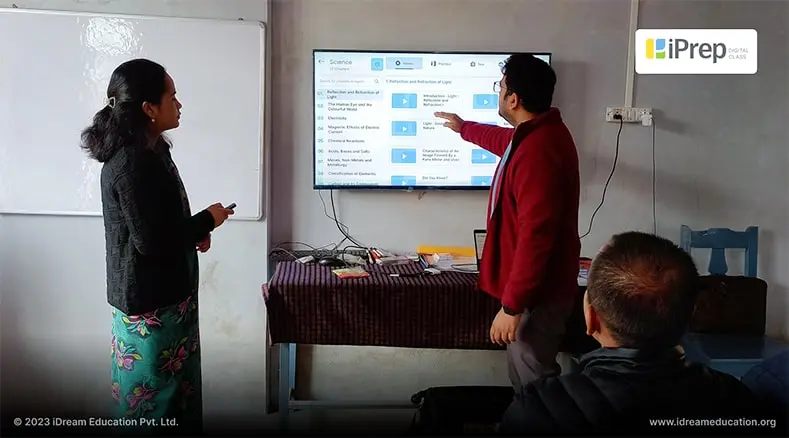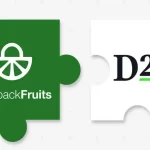The EdTech sphere is saturated with “tech solutions” aimed at solving the diverse problems of the education industry. However, when we dive deep, the impact does not seem to reach the ground level. We rarely find a holistic solution that addresses multiple educational challenges and creates effect till the last mile, especially in public sector education. iDream Education is one such dedicated startup that aims to change this and, more so, create a platform that is truly universal and useful for both Government and private school learners.
To understand more about iDream Education’s work, vision, and journey, we talked with Rohit Prakash, the co-founder of iDream Education.
iDream Education: The Idea and the Journey
After completing engineering from Jamia, New Delhi, and an MBA from MDI Gurgaon, Rohit Prakash started working with an FMCG company. At that time, his father was working in the environmental sustainability space. The volume of research in environmental space intrigued him as he saw no action happening on the ground.
He said,
I wanted to connect the research inside our laboratories and then take those learnings to our school children. So, in 2009, I started a company called iDream, wherein we used to work on creating online courses on sustainability and the environment for school children. That company evolved into being a sustainability consulting company for schools, wherein we used to go to schools and conduct environment audits and, educate students about topics like carbon footprint, energy consumption, etc. Most of the work we were doing was with Private schools but through a partnership with Nokia and later Microsoft, I got an opportunity to implement a similar program in government schools. During that experience, I had my first visit to a government school, and the situation there was very different. It was disheartening to see the kind of environment and ecosystem that is available for our rural kids. And I thought, how can something like this even happen? I went into a school where the blackboard was in a very pathetic condition. Students did not have proper seating, and an English teacher couldn’t converse in English. I had a disheartening experience witnessing the condition of the government school.
With his experience around sustainability and school training, Rohit was looking out for answers to questions in his mind about the state of our government schools. Coincidentally, around that time, Puneet, now the co-founder of iDream Education, also had similar experiences with the government schools. Puneet, however, had a deep experience and insights on EdTech while setting up interactive learning labs in schools. Both found a common love for solving the last mile learning challenges and hence came together to seed iDream Education in 2016.
Product USP and Differentiation
Sharing how they’ve uniquely positioned themselves in the market, Rohit shares the two areas that differentiate them from the others: building their solutions in a way that is very easy to set up and use inside the classrooms. Second is iPrep, its platform, and content. He explains what iPrep is and how it has been designed to empower students to Learn Unlimited by breaking barriers, like Language Medium, Multi-Grade Access, Multi-Category Access, Curriuclum-aligned content, Universal Access, and Inclusive and affordable. iPrep is bilingual, enabling students to learn in the language they are comfortable with. For people with limited or zero internet access, the company provides offline digital content preloaded on a Pen drive or SD card for offline access to iPrep. iPrep is compatible with all types of hardware and OS, allowing it to be used on any device, including Android phones, tablets, desktops, laptops, and iPhones. It also caters to varied learning needs and interests by providing a separate section to read books, watch DIY videos, and life skills content.
He says,
iPrep is bilingual and can deliver English medium content and local language content. So, if a kid in Tamil Nadu opens iPrep, they can seamlessly start learning in Tamil. The entire interface, language, category buttons, and everything is in Tamil. The same would be true for a child in Maharashtra or any other place. However, I believe the most important differentiator among all the factors is that we have built a multi-category learning platform. If a child wants to learn by watching videos, then you have videos on iPrep. If a child wants to learn by reading, then there are syllabus books. There may be kids who want to learn by practice. So, there are practice questions and test sections. So iPrep becomes a comprehensive content library for all types of learners, catering to their requirements for learning growth. And that, I believe, is one of our biggest differentiators.

Market Insights and Work with Governments, NGOs, and Other Partners
Speaking of the improvements in the landscape, Rohit shares how tech-assisted learning or tablet-based learning no longer requires concept-selling and conviction. He also talks about the increasing internet accessibility, which is helping to access quality education to the masses. He further shares a government project on personalised adaptive learning implementation where lacs of students will be given tablets with online access to a PAL (Personalised Adaptive Learning) application – where everything goes online in a government ecosystem.
Talking about tablet-based learning, he says,
I still remember pre-COVID, when we used to go and talk to someone about a solution, we actually used to do concept selling as well. We used to tell them why tablet-based learning or mobile learning is important. That has gone away. Now, I see a major shift in Data-backed outcomes, and Data-Backed Personalised Learning is coming in very, very strongly. And we have also revamped our capabilities to get precise data about how a child is learning and what they are learning, how much they are scoring, etc.
He also discussed how the model of hybrid learning is evolving very well in our country, where classroom teaching in the school is supplemented by personalised online learning at home.
Talking about NGOs, non–profits, and Government initiatives in this direction, Rohit spoke about 3 implementations that are very close to his heart, among several others that iDream has been working on. First is the work with 10 Army Goodwill schools, where 128 Classrooms have been digitised by a Smart Classroom set up for the teachers and a personalised tablet based digital library for the students. Students are also being encouraged to learn at home using iPrep on their mobile phones.

Second, he talked about the work in Meghalaya, which is a very interesting case study. The challenge with the state is that the entire medium of learning is English. However, the comprehension capability of the students in English is extremely low. As a result, passing marks are very low. Baseline assessment has revealed that students in grade 10 are at a grade 6 level in subjects of Math and Science. iDream Education has set up iPrep Digital Class in 166 classrooms in one district and is further accessing learning outcomes for every student every month via assessments being conducted on tablets. Results from these monthly assessments are shared with the teachers, and plans are made to provide personalised guidance to the students to enable them to cover up their learning gaps.
Finally, Rohit talks about the work of iDream Education with the Cipla Foundation. This association had started during Covid itself when the Cipla Foundation realized that the students of Class 10 from the government school near their factories were at a great loss. They had lost connection with their teachers, and sitting at home, their readiness to appear for Class 10 board exams was becoming a big cause of worry. It was then that Cipla Foundation collaborated with iDream to provide iPrep Learning tablets to over 6,000 students in Maharashtra, MP and Karnataka. Students were given tablets to learn at home with digital content for grades 10 and 9 preloaded. This greatly solved their problem of having a device of their own and dependence on the internet. Now, they can learn offline anytime and from anywhere.
Solution Impact and the Outcomes
Rohit shared how their solution reaches over 16,000 classrooms, and almost 5.5 lakh students use their products in different forms. He also explained how iPrep captures data on every student activity, which helps them analyze the learner’s progress and quantify the impact. He shares that, on average, every student uses iPrep for up to 30 minutes every day for almost 15 – 20 days a month. He also shared details about how schools have started using their solution regularly.
As for learning outcomes, he mentions,
There have been cases where we have managed to achieve an improvement of 20% to 25% in subjects like mathematics and science.
The reason why their product is growing in the consumer base is the “ease of use”. He says, “By simply replacing a typical smart classroom with a very simple-to-use smart TV or a panel (the one offered by iDream Education) in a school, we do away with complex paraphernalia such as wires, equipment/PCs/Projectors, unnecessary infrastructure (most of which we have seen is quite overwhelming for a Government School teacher), We provide a solution on a secure pen drive which works on the earmarked panel or smart TV; just insert the pen drive, and all content sits there. You have the iPrep app, install it once, and then you can operate all smart class content offline on iPrep with a remote or touch, making it very easy for the teachers to use it inside classrooms. We are now observing a “regular usage” of our smart classroom solution inside the classrooms. We are getting an average usage of 1.5 to 2 hours every day in a classroom.”
The First Product and Subsequent Product Portfolio For Diverse Needs
From teacher-centric tech solutions to student learning-centric products, the EdTech industry has come a long way. We spoke to Rohit about the evolution of iDream Education from 2016 to the present and how their “holistic approach to learning” came into the picture. To explain this, he shares his experience when he visited a tribal village in Andhra and discovered that almost 99 percent of students there were familiar with smartphones and playing games that most people in urban areas do.
He says,
That visit to a school in the village gave us an insight that the smartphone penetration is happening at a very, very quick speed in our country. The interesting part, however, is that a natural adoption is happening on those smartphones, which means that nobody is coming and training them on how to use a smartphone. You buy it, and within a few minutes or hours, you are well-versed in using a smartphone. And that inspired us to look at edtech in a student-centric model. That’s how we created our first product. It was called TabLab then. Now we call it iPrep Digital Library.
To cater to the diverse learning needs in the public sector, iDream Education offers multiple solutions:
- iPrep Digital Class is a smart TV/IFP-based Smart Class Solution.
- iPrep Digital Library is a tablet/notebook-based Smart ICT Lab that we set up inside the schools.
- iPrep Learning Tablet is a learning solution used by students at home for offline access to content with centralised reporting.
- iPrep PAL is a personalised adaptive learning app to enables students to build mastery of a topic (while bridging historical learning gaps) by using diagnostic tests for all chapters, followed by a personalised learning path based on their current learning levels.
- iPrep is a one-stop learning platform across Android, iOS, and Web
Future of EdTech in India
When asked about the future of EdTech in India, he mentions “hybrid learning” models and “growth in vernacular language content” as key opportunities.
“I believe that the real opportunity lies if we can integrate EdTech, even if it is happening at home, with the school ecosystem and let teachers also gain confidence in the capabilities of EdTech at home. Hence, I believe that a hybrid learning ecosystem coupled with good EdTech solutions at home, which are in sync with the school, will be a way forward for EdTech. And this is what we are working on with our ecosystem partners, including Government, CSR partners, NGOs, School Technology/LMS companies, Hardware Partners, Private Schools, Educators, Parents and Students. Another thing that will happen is more content availability in local languages. Good quality content should be made available in local languages as well“, he concluded.
Go to the Interview Video to learn more about iDream Education’s journey since 2016 and how they are looking at the future of education through the lens of technology.
Also Read: State of Government School Education: How Far We Have Come, The Scope of Growth and The Road Ahead
![[exclusive Interview] How Idream Education is Attempting to Act As Catalyst in the K-12 Education Space Aiming Long-term Change Exclusive Interview How iDream Education is Attempting to Act as Catalyst in the K-12 Education Space Aiming Long-term Change](https://www.edtechreview.in/wp-content/uploads/idream-interview-banner.webp)

